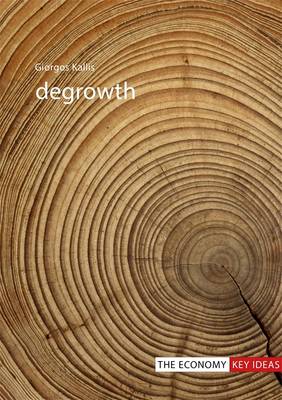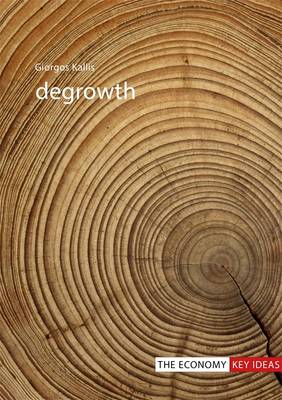
- Afhalen na 1 uur in een winkel met voorraad
- Gratis thuislevering in België vanaf € 30
- Ruim aanbod met 7 miljoen producten
- Afhalen na 1 uur in een winkel met voorraad
- Gratis thuislevering in België vanaf € 30
- Ruim aanbod met 7 miljoen producten
Zoeken
Omschrijving
The term "degrowth" has emerged within ecological and other heterodox schools of economics as a critique of the idea (and ideology) of economic growth. Instead, degrowth advocates a contraction of economies by reducing production and consumption, arguing that it is possible to do so without reducing prosperity or wellbeing. One might see in the degrowth community a resurgence of a radical theoretical and political variant of environmentalism, or "ecologism," based on the key premise that there are, and that there must be, "limits to growth."
While this is an old idea, the recent degrowth literature has given it new shape by bringing different disciplines and schools of thought together in formulating its core critiques and propositions. Degrowth is the interdisciplinary theory, or science, of ecologism and the aim of this book is to summarize its core elements in a brief, succinct, and simple form. It grounds degrowth squarely within the field of ecological economics and, in addition to outlining its key ideas, explores what it would take for an economy to transition to a position that enabled it to prosper without growth.Specificaties
Betrokkenen
- Auteur(s):
- Uitgeverij:
Inhoud
- Aantal bladzijden:
- 176
- Taal:
- Engels
- Reeks:
Eigenschappen
- Productcode (EAN):
- 9781911116806
- Verschijningsdatum:
- 30/06/2018
- Uitvoering:
- Paperback
- Formaat:
- Trade paperback (VS)
- Afmetingen:
- 147 mm x 208 mm
- Gewicht:
- 317 g

Alleen bij Standaard Boekhandel
+ 62 punten op je klantenkaart van Standaard Boekhandel
Beoordelingen
We publiceren alleen reviews die voldoen aan de voorwaarden voor reviews. Bekijk onze voorwaarden voor reviews.








